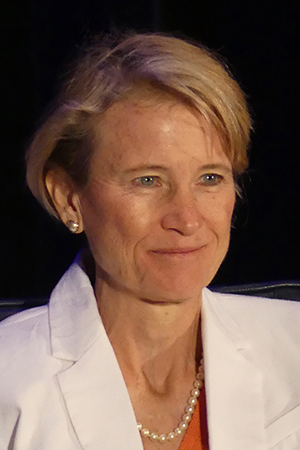Related Research Articles

In ethics, casuistry is a process of reasoning that seeks to resolve moral problems by extracting or extending theoretical rules from a particular case, and reapplying those rules to new instances. This method occurs in applied ethics and jurisprudence. The term is also commonly used as a pejorative to criticize the use of clever but unsound reasoning, especially in relation to moral questions. It is the "[s]tudy of cases of conscience and a method of solving conflicts of obligations by applying general principles of ethics, religion, and moral theology to particular and concrete cases of human conduct. This frequently demands an extensive knowledge of natural law and equity, civil law, ecclesiastical precepts, and an exceptional skill in interpreting these various norms of conduct." It remains a common tool for applied ethics.
An ethicist is one whose judgment on ethics and ethical codes has come to be trusted by a specific community, and (importantly) is expressed in some way that makes it possible for others to mimic or approximate that judgment. Following the advice of ethicists is one means of acquiring knowledge about what that ethicist says.

Aristotelianism is a philosophical tradition inspired by the work of Aristotle, usually characterized by deductive logic and an analytic inductive method in the study of natural philosophy and metaphysics. It covers the treatment of the social sciences under a system of natural law. It answers why-questions by a scheme of four causes, including purpose or teleology, and emphasizes virtue ethics. Aristotle and his school wrote tractates on physics, biology, metaphysics, logic, ethics, aesthetics, poetry, theatre, music, rhetoric, psychology, linguistics, economics, politics, and government. Any school of thought that takes one of Aristotle's distinctive positions as its starting point can be considered "Aristotelian" in the widest sense. This means that different Aristotelian theories may not have much in common as far as their actual content is concerned besides their shared reference to Aristotle.

Incompatibilism is the view that a deterministic universe is completely at odds with the notion that persons have free will, the latter being defined as the capacity of conscious agents to choose a future course of action among several available physical alternatives. Thus, incompatibilism implies that there is a dichotomy between determinism and free will, where philosophers must support at most one or the other, not both. The incompatibilist view is pursued further in at least three different ways: libertarians deny that the universe is deterministic, hard determinists deny that any free will exists, and pessimistic incompatibilists deny both that the universe is determined and that free will exists.

Analytical Thomism is a philosophical movement which promotes the interchange of ideas between the thought of Thomas Aquinas, and modern analytic philosophy.

Mary Beatrice Midgley was a British philosopher. A senior lecturer in philosophy at Newcastle University, she was known for her work on science, ethics and animal rights. She wrote her first book, Beast and Man (1978), when she was in her late fifties, and went on to write over 15 more, including Animals and Why They Matter (1983), Wickedness (1984), The Ethical Primate (1994), Evolution as a Religion (1985), and Science as Salvation (1992). She was awarded honorary doctorates by Durham and Newcastle universities. Her autobiography, The Owl of Minerva, was published in 2005.
Moral psychology is a field of study in both philosophy and psychology. Historically, the term "moral psychology" was used relatively narrowly to refer to the study of moral development. Moral psychology eventually came to refer more broadly to various topics at the intersection of ethics, psychology, and philosophy of mind. Some of the main topics of the field are moral judgment, moral reasoning, moral sensitivity, moral responsibility, moral motivation, moral identity, moral action, moral development, moral diversity, moral character, altruism, psychological egoism, moral luck, moral forecasting, moral emotion, affective forecasting, and moral disagreement.
David Schmidtz is a Canadian-American philosopher. He is Presidential Chair of Moral Science at West Virginia University's Chambers College of Business and Economics. He is also editor-in-chief of the journal Social Philosophy & Policy. Previously, he was Kendrick Professor of Philosophy and Eller Chair of Service-Dominant Logic at the University of Arizona. While at Arizona, he founded and served as inaugural head of the Department of Political Economy and Moral Science.

Tara A. Smith is an American philosopher. She is a professor of philosophy, the BB&T Chair for the Study of Objectivism, and the Anthem Foundation Fellow for the Study of Objectivism at the University of Texas at Austin.
Christopher Kennedy Huebner is an associate professor of theology and philosophy at Canadian Mennonite University, as well as co-editor of Herald Press's Polyglossia series.
Fred Dycus Miller Jr. is an American philosopher who specializes in Aristotelian philosophy, with additional interests in political philosophy, business ethics, metaphysics, and philosophy in science fiction. He is a professor emeritus at Bowling Green State University.
John F. O'Neill is a philosopher. He is professor of political economy at the University of Manchester. He has published on subjects related to political economy and philosophy, philosophy and environmental policy, political theory, environmental ethics, and the philosophy of science.
Constantine Sandis FRSA is a Greek and British philosopher and entrepreneur. Having worked on philosophy of action, moral psychology, David Hume, and Ludwig Wittgenstein, in 2013 he became the UK's youngest Professor of Philosophy, aged 36. He is currently Professor of Philosophy at the University of Hertfordshire and a Founding Director of author services firm Lex Academic.
John Hadley is an Australian philosopher whose research concerns moral and political philosophy, including animal ethics, environmental ethics, and metaethics. He is currently a senior lecturer in philosophy in the School of Humanities and Communication Arts at Western Sydney University. He has previously taught at Charles Sturt University and the University of Sydney, where he studied as an undergraduate and doctoral candidate. In addition to a variety of articles in peer-reviewed journals and edited collections, he is the author of the 2015 monograph Animal Property Rights and the 2019 monograph Animal Neopragmatism. He is also the co-editor, with Elisa Aaltola, of the 2015 collection Animal Ethics and Philosophy.
Moral enhancement, also called moral bioenhancement, is the use of biomedical technology to morally improve individuals. MBE is a growing topic in neuroethics, a field developing the ethics of neuroscience as well as the neuroscience of ethics. After Thomas Douglas introduced the concept in 2008, its merits have been widely debated in academic bioethics literature. Since then, Ingmar Persson and Julian Savulescu have been vocal MBE supporters, as well as Parker Crutchfield, who has argued in favor of covert and compulsory use of ME upon unsuspecting populations. Much of the debate over MBE has focused on Persson and Savulescu's 2012 book in support of it, Unfit for the Future? The Need for Moral Enhancement.
Garrett Michael Cullity is an Australian philosopher and Professor of Philosophy at Australian National University. He was Hughes Professor of Philosophy at the University of Adelaide between 2007 and 2020. He is known for his research on moral philosophy. Cullity is a Fellow of Australian Academy of the Social Sciences and Australian Academy of the Humanities, and a former president of Australasian Association of Philosophy (2012-2013).

Joanne Bridgett Ciulla is an American philosopher. She is a pioneer in the field of leadership ethics as well as teaching and publishing on business Ethics. She is currently a professor at the Rutgers Business School - Newark and New Brunswick and is the director of the Institute for Ethical Leadership. She has received several awards for her contributions to leadership studies and business ethics.

The predation problem or predation argument refers to the consideration of the harms experienced by animals due to predation as a moral problem, that humans may or may not have an obligation to work towards preventing. Discourse on this topic has, by and large, been held within the disciplines of animal and environmental ethics. The issue has particularly been discussed in relation to animal rights and wild animal suffering. Some critics have considered an obligation to prevent predation as untenable or absurd and have used the position as a reductio ad absurdum to reject the concept of animal rights altogether. Others have criticized any obligation implied by the animal rights position as environmentally harmful.
Moral Inquiries on the Situation of Man and of Brutes is an 1824 book by Lewis Gompertz, an early animal rights advocate and vegan. In the book, Gompertz lays out a moral framework for the treatment of and obligations towards humans and other animals, arguing against the consumption of meat, milk, eggs, silk and leather, denouncing vivisection and arguing for aiding animals suffering in the wild.
"The Meat Eaters" is a 2010 essay by the American philosopher Jeff McMahan, published as an op-ed in The New York Times. In the essay, McMahan asserts that humans have a moral obligation to stop eating meat and, in a conclusion considered to be controversial, that humans also have a duty to prevent predation by individuals who belong to carnivorous species, if we can do so without inflicting greater harm overall.
References
- ↑ "Adrian Walsh (University of New England / University of Helsinki)". Moral and Political Philosophy Research Seminar. 21 April 2015. Retrieved 29 October 2018.
- ↑ "Community of Fellows". University of St Andrews. Retrieved 29 October 2018.
- ↑ "Adrian Walsh". Expert Discovery Porta. Retrieved 29 October 2018.
- ↑ "Adrian Walsh". University of Oxford Centre for Personalised Medicine. Retrieved 29 October 2018.
- ↑ Hope, Simon (May 2013). "Neo-Aristotelian Social Justice: An Unanswered Question". Res Publica. 19 (2): 157–172. doi:10.1007/s11158-013-9213-y. S2CID 144904376.
- ↑ Peden, William (19 April 2018). "Boundaries, blunders, and scientific imperialism". Metascience. 27 (3): 457–460. doi:10.1007/s11016-018-0317-z. ISSN 0815-0796. S2CID 150353389.
- ↑ CLAASSEN, RUTGER (15 January 2008). "Ethics, Money and Sport. This Sporting Mammon - by Adrian Walsh & Richard Giulianotti". Journal of Applied Philosophy . 25 (1): 75–77. doi:10.1111/j.1468-5930.2008.00399_2.x. ISSN 0264-3758.
- ↑ "Journal of Applied Philosophy". onlinelibrary.wiley.com. doi:10.1111/(ISSN)1468-5930 . Retrieved 29 October 2018.